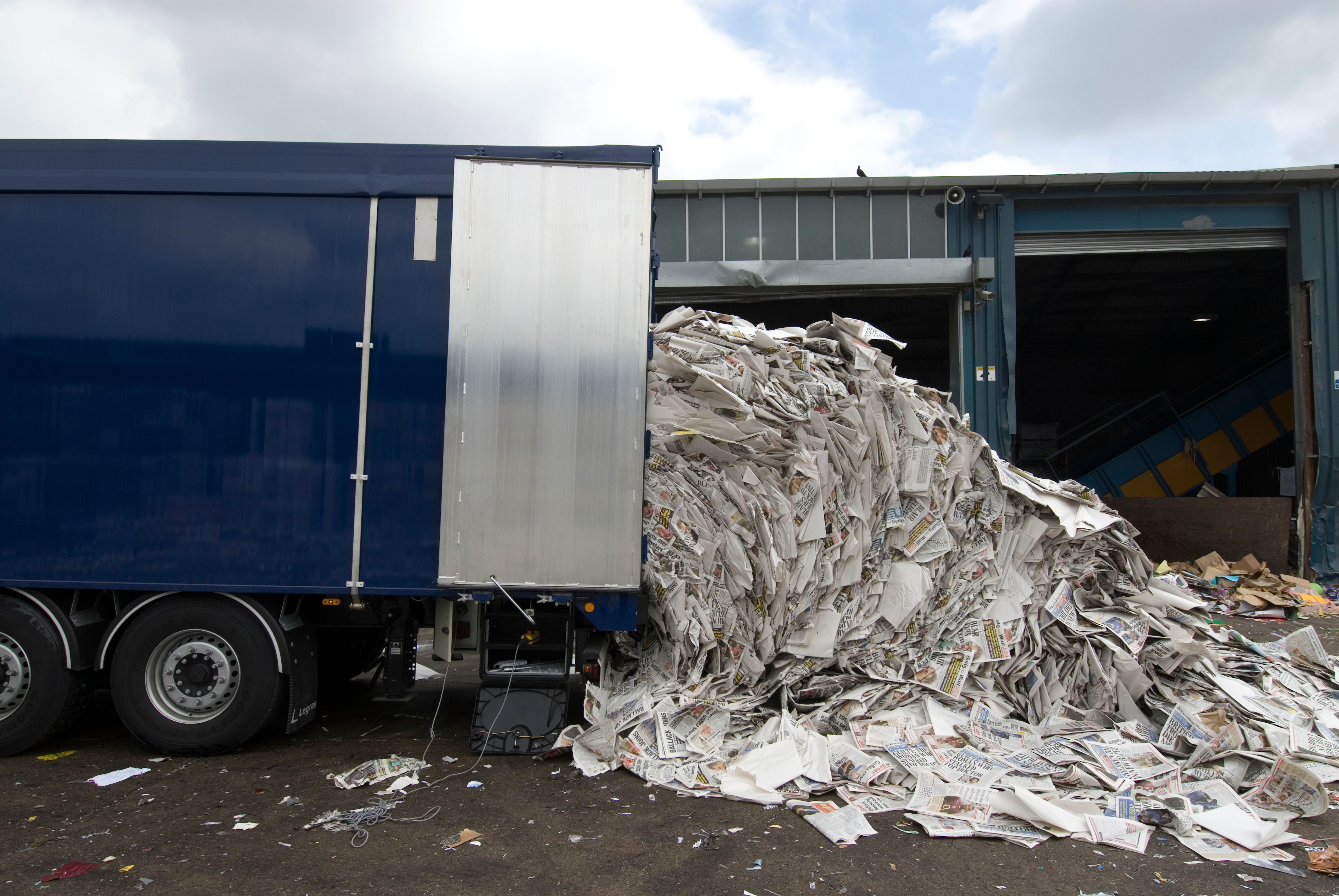Time to write newspapers' obituary?
Ad revenues are dropping precipitously even as the overall economy is growing

A free daily email with the biggest news stories of the day – and the best features from TheWeek.com
You are now subscribed
Your newsletter sign-up was successful
The smartest insight and analysis, from all perspectives, rounded up from around the web:
"Print newspapers are dying faster than you think," said Timothy B. Lee at Vox. That the print industry is in decline will surprise no one, but the latest advertising revenue figures "tell a scary story." Print ads declined 15 percent during the third quarter at Gannett, the country's largest newspaper publisher and the owner of USA Today. Meanwhile, print revenues were down 17 percent at McClatchy (which owns The Miami Herald and The Sacramento Bee), 19 percent at The New York Times, and 21 percent at The Wall Street Journal; the last announced it will cut staff and eliminate sections to cope with the losses. Making matters worse: These ad revenues are dropping precipitously even as the overall economy is growing. Advertising has long been "a cyclical business," and when newspaper revenues plunged during the recession, many in the industry imagined they would recover once the economy improved. That never happened. If newspapers are doing this badly during a recovery, "things will get much, much worse when the next recession hits."
"Where do newspapers go from here?" asked Derek Thompson at The Atlantic. Ironically, the future of print may be in its distant past. The earliest American newspapers relied on small numbers of subscribers who paid luxury prices for the product. Beginning in the 1830s, media innovators realized they could make more money selling cheap papers to bigger audiences, with the real profit coming from ads. Today, newspapers are once again refocusing on subscribers as a profit center. In 2000, circulation accounted for 26 percent of The New York Times' revenue. Today, it's 60 percent, "and growing." Newspapers will need to experiment radically in order to survive the industry's downturn, said Jennifer Saba at The New York Times. The trouble is, that's unlikely to happen at a publicly traded media company. Investors really don't have the patience to wait for struggling companies like Gannett and Tronc, which publishes the Chicago Tribune and Los Angeles Times, to test new content models and delivery methods. But hope may lie in next-generation media moguls like Amazon founder Jeff Bezos, who bought The Washington Post in 2013. "Many American newspapers would benefit from a steward willing to sacrifice short-term profit for a longer-term vision."
The Week
Escape your echo chamber. Get the facts behind the news, plus analysis from multiple perspectives.

Sign up for The Week's Free Newsletters
From our morning news briefing to a weekly Good News Newsletter, get the best of The Week delivered directly to your inbox.
From our morning news briefing to a weekly Good News Newsletter, get the best of The Week delivered directly to your inbox.
"What if almost the entire newspaper industry got it wrong?" asked Jack Shafer at Politico. Over the past two decades, print papers have struggled mightily to reinvent themselves for the digital age. But a recent study shows that despite huge investments in "digital first" strategies, major newspapers have seen almost zero growth in online readership since 2007, with readers turning instead to news aggregators like Yahoo News and Google News. Digital ad revenue for newspapers increased from $3 billion to only $3.5 billion from 2010 to 2014. Surveys also show that most readers still prefer the print version of their daily newspaper to the web product. It sounds like heresy, but maybe newspapers should focus on what they're good at — instead of fighting a digital war they can't possibly win.
A free daily email with the biggest news stories of the day – and the best features from TheWeek.com
-
 6 of the world’s most accessible destinations
6 of the world’s most accessible destinationsThe Week Recommends Experience all of Berlin, Singapore and Sydney
-
 How the FCC’s ‘equal time’ rule works
How the FCC’s ‘equal time’ rule worksIn the Spotlight The law is at the heart of the Colbert-CBS conflict
-
 What is the endgame in the DHS shutdown?
What is the endgame in the DHS shutdown?Today’s Big Question Democrats want to rein in ICE’s immigration crackdown
-
 The pros and cons of noncompete agreements
The pros and cons of noncompete agreementsThe Explainer The FTC wants to ban companies from binding their employees with noncompete agreements. Who would this benefit, and who would it hurt?
-
 What experts are saying about the economy's surprise contraction
What experts are saying about the economy's surprise contractionThe Explainer The sharpest opinions on the debate from around the web
-
 The death of cities was greatly exaggerated
The death of cities was greatly exaggeratedThe Explainer Why the pandemic predictions about urban flight were wrong
-
 The housing crisis is here
The housing crisis is hereThe Explainer As the pandemic takes its toll, renters face eviction even as buyers are bidding higher
-
 How to be an ally to marginalized coworkers
How to be an ally to marginalized coworkersThe Explainer Show up for your colleagues by showing that you see them and their struggles
-
 What the stock market knows
What the stock market knowsThe Explainer Publicly traded companies are going to wallop small businesses
-
 Can the government save small businesses?
Can the government save small businesses?The Explainer Many are fighting for a fair share of the coronavirus rescue package
-
 How the oil crash could turn into a much bigger economic shock
How the oil crash could turn into a much bigger economic shockThe Explainer This could be a huge problem for the entire economy